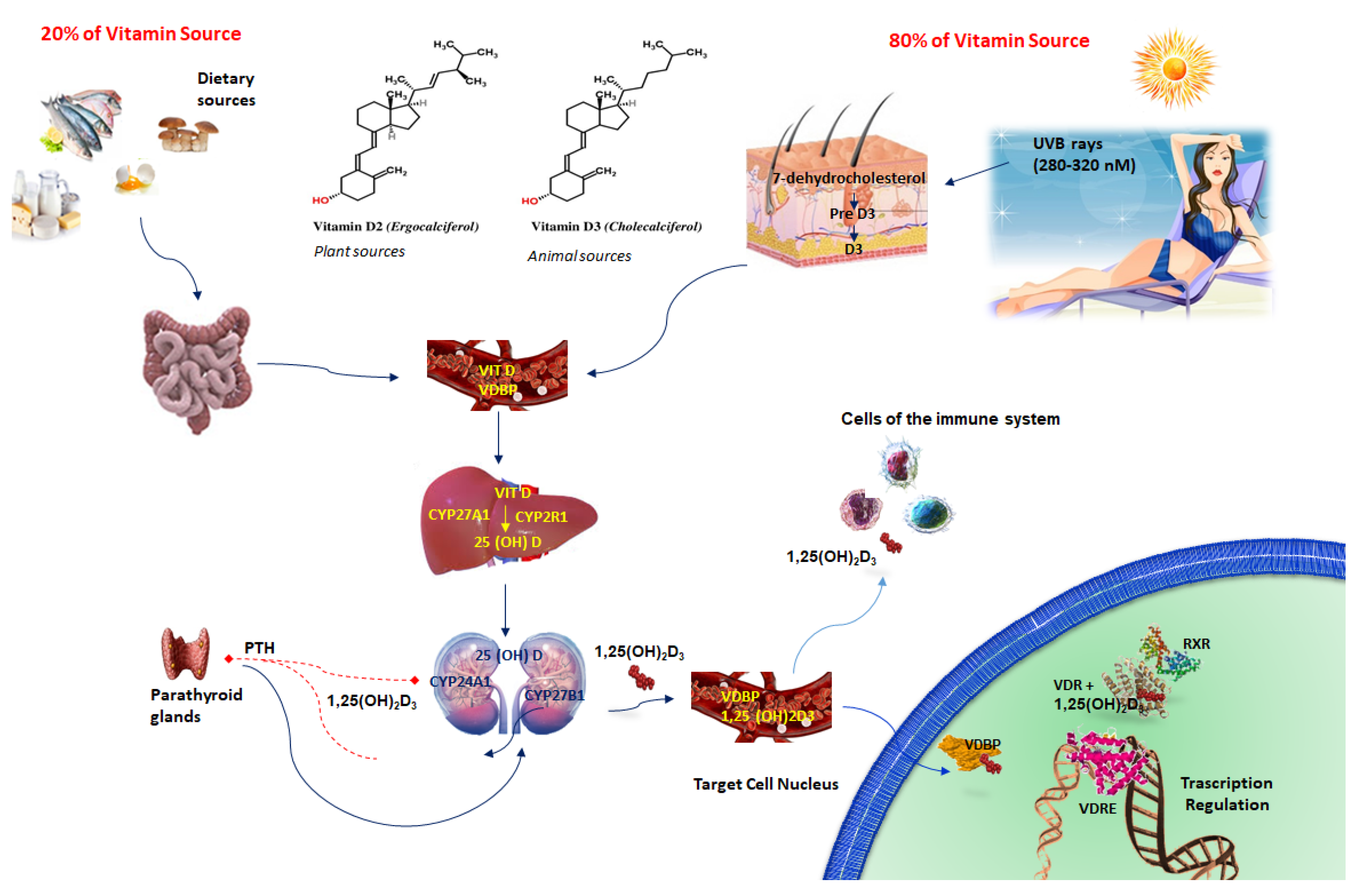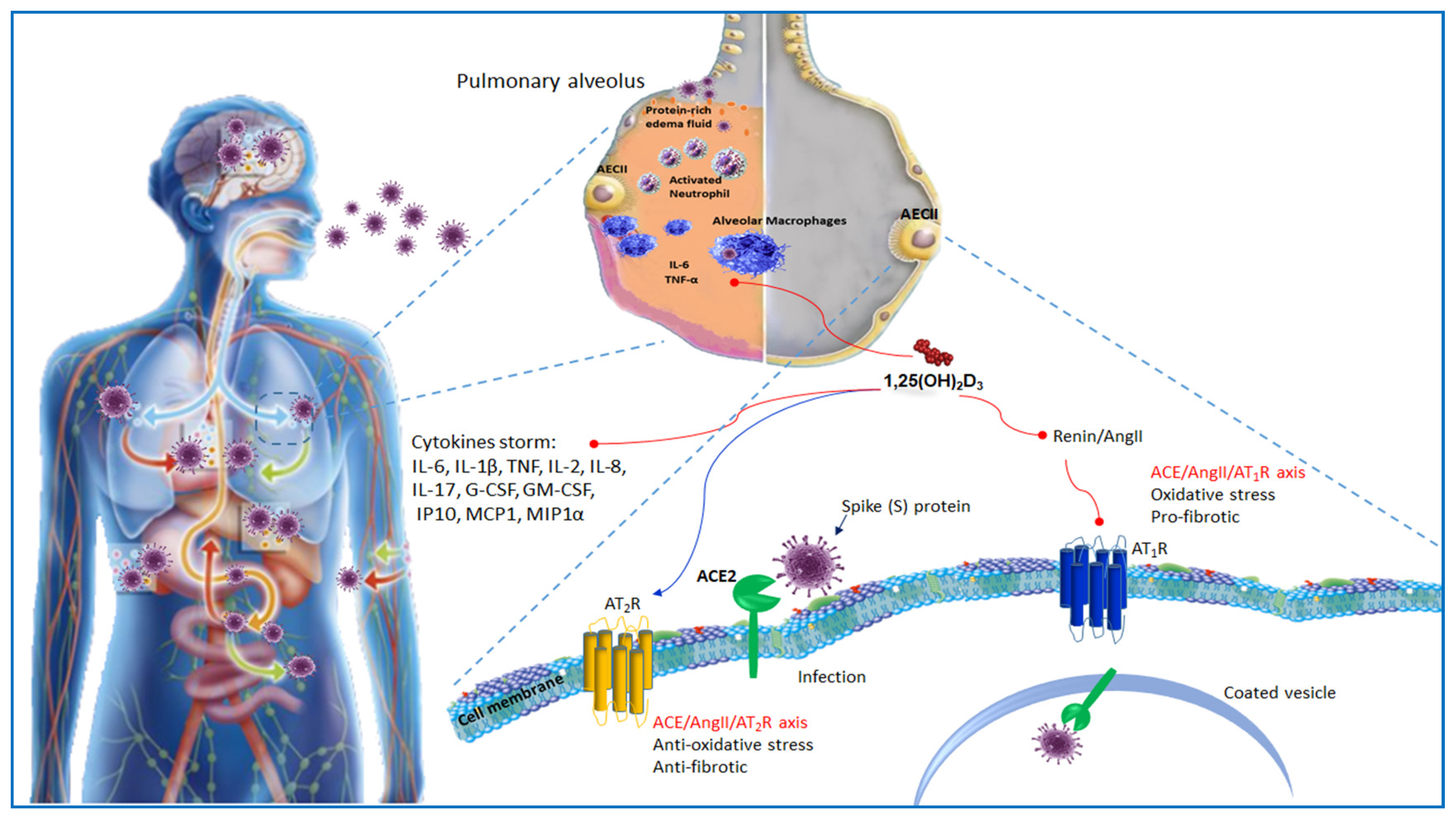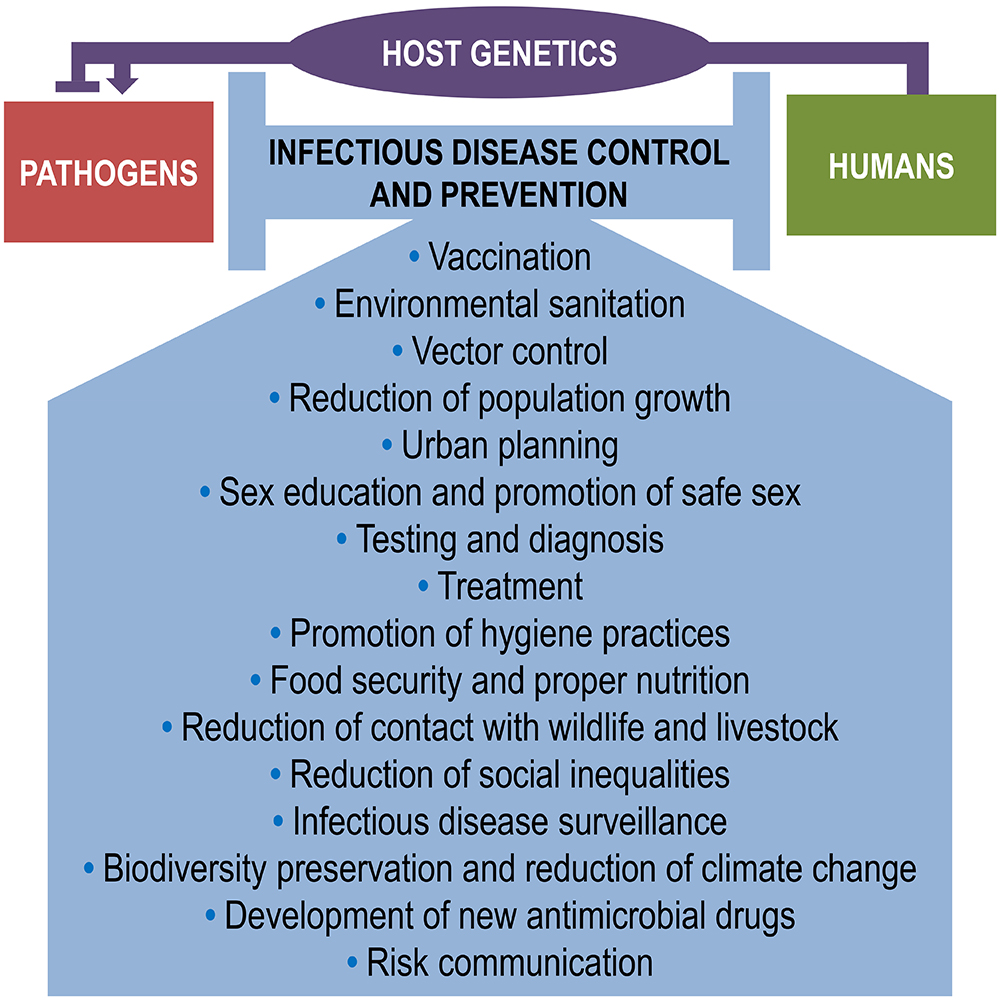Vitamin D For Treatment And Prevention Of Infectious Diseases
AbstractVitamin D is well known for its. A large number of trials have been conducted over the past two decades into the effects of vitamin D on disease management and prevention.

Nutritional Risk Of Vitamin D Vitamin C Zinc And Selenium Deficiency On Risk And Clinical Outcomes Of Covid 19 A Narrative Review Clinical Nutrition Espen
The potential role of vitamin D for prevention and treatment of tuberculosis and infectious diseases.
/Can-vitamin-d-prevent-respiratory-infections-4842761_V12-ea8d470cf372477cbd4d2b03ee93fe09.gif)
Vitamin d for treatment and prevention of infectious diseases. That sounds like a lot but the actual decrease in risk for developing an autoimmune disease fell from about 12 people in 1000 to 95 people in 1000. Observational studies have linked vitamin D status and infectious disease. This represents a 22 reduction.
Progression of some infectious diseases. This review aims to consolidate data from clinical trials that used vitamin D for the treatment or prevention of infectious disease. Vitamin D and the Immune System.
Besides treating and preventing a. Deficient population with high rates of latent TB infection should be investigated to determine vitamin Ds prevention effect in TB. Vitamin D is well known for its classic role in the maintenance of bone mineral density.
This association is supported by the presence of the vitamin D receptor and CYP27B1 in immune cells. Vitamin D and infectious diseases Endocr Metab Immune Disord Drug Targets. The researchers reported that.
A systematic review of randomized controlled trials. Vitamin D deficiency VDD is a common condition among several populations in the world. Vitamin D is known to be of physiological importance it is considered an essential micronutrient for the bone health and plays a beneficial role in the prevention andor treatment of a number of chronic diseases.
Observational studies have linked vitamin D status and infectious disease. 123 people taking vitamin D developed autoimmune disease compared with 155 people in the placebo group. Vitamin D has a complex action on the immune system.
A Systematic Review of Randomized Controlled Trials. Vitamin D has been shown to have many effects on immune cells enhancing the bodys ability to fight infection and decrease inflammation. However vitamin D also has an important non-classic influence on the bodys immune system by modulating the innate and adaptive immune system influencing the production of important endogenous antimicrobial peptides such as cathelicidin.
A deficiency of vitamin D is linked to increased susceptibility to infection. Vitamin D has a potential effect on HIV human immunodeficiency virus and plays a crucial role in the defence against respiratory infections. Health maintenance and Vitamin D.
Vitamin D and Bacterial Infections. The infectious disease most frequently associated with Vitamin D is tuberculosis and early scientific studies from the nineteenth century reported on the use of cod liver oil treatment which. TitleThe Role of Vitamin D in Prevention and Treatment of Infection VOLUME.
Several studies have shown that low levels of vitamin D are associated with the susceptibility and the severity of acute infections on one hand and with an unfavorable outcome of some chronic infections such as HIV infection. Although the exact mechanisms by which vitamin D may improve immune responses to infection continue to be evaluated vitamin D supplementation trials of prevention and adjunct therapy for infection are underway. Since the eighteenth century Vitamin D-rich adjuvant therapy has been used to treat conditions which are nowadays considered infections.
The rationale for using vitamin D is based largely on immunomodulatory effects that could potentially protect against COVID-19 infection or decrease the severity of illness. The immune response to infections is a complex and dynamic process involving multiple cell types and soluble factors such as cytokines chemokines and hormones Numerous studies support the role of VD in both the innate and adaptive immune responses following viral and bacterial infections 1718In addition several. Given its influence on the immune system and inflammatory cascade vitamin D may have an important future role in the prevention and.
4 Vitamin D has also been found to regulate acquired immune response also called the adaptive immune response. No strong evidence exists whether correction of vitamin D depletion may be useful in the prevention or treatment of infections. Mourani and Adit A.
The pioneering work by Rook et al and Crowle et al in the 1980s demonstrated that vitamin D enhanced bactericidal activity of human macrophages against Mycobacterium tuberculosis the causative agent of TBThis discovery led to a new era of interest regarding the role of vitamin D in determining pathogenesis and the immune response. Vitamin D is known to be of physiological importance it is considered an essential micronutrient for the bone health and plays a beneficial role in the. Five human trials of vitamin D replacement as treatment or prevention of bacterial disease have attempted to translate the mechanism of vitamin D-mediated macrophage activation to the human host.
Vitamin D supplementation improves. KeywordsAntimicrobial cathelicidin immune system infection inflammation vitamin D. This association is supported by the presence of the vitamin D receptor and CYP27B1 in immune cells.
After 12 weeks 25-hydroxyvitamin D levels increased significantly to 885-232 nmoll in the vitamin D group whereas there was no change in vitamin D levels in the placebo group. Vitamin D for treatment and prevention of infectious diseases. Vitamin D is known to be of physiological importance it is considered an.
Aurora CO 80045 USA. To infection as well as for delineation of necessary changes in clinical practice and medical care of patients with vitamin D deficiency in infectious disease. VDD is associated with higher incidence of immune system disorders and faster progression of some infectious diseases.
Ann Ist Super Sanita. Further and larger studies may clarify the role of vitamin D in infection. This review aims to consolidate data from clinical trials that used vitamin D for the treatment or prevention of infectious disease.
More rigorously designed clinical trials are needed for further evaluation of the relationship between vitamin D status and the immune response to infection as well as for delineation of necessary changes in clinical practice and medical care of patients with vitamin D deficiency in infectious disease settings. VDD is associated with higher incidence of immune system disorders and faster progression of some infectious diseases. Vitamin D for Treatment and Prevention of Infectious Diseases.
Vitamin D plays a role in the synthesis of antibacterial peptids and in autophagy. Four of the 5 studies were conducted in. Ongoing observational studies are evaluating the role of vitamin D in preventing and treating COVID-19.
Some investigational trials on the use of vitamin D in people with.

Nutrients Free Full Text Vitamin D3 As Potential Treatment Adjuncts For Covid 19 Html

Vitamin D3 And K2 And Their Potential Contribution To Reducing The Covid 19 Mortality Rate International Journal Of Infectious Diseases

Nutrients Free Full Text Vitamin D3 As Potential Treatment Adjuncts For Covid 19 Html

Pdf Evidence That Vitamin D Supplementation Could Reduce Risk Of Influenza And Covid 19 Infections And Deaths

Scielo Brasil Control And Prevention Of Infectious Diseases From A One Health Perspective Control And Prevention Of Infectious Diseases From A One Health Perspective

Pdf One Hundred Years After Vitamin D Discovery Is There Clinical Evidence For Supplementation Doses

Vitamin D Immune System Sars Cov 2 Covid 19 Mechanism Of Vit D Immune Regulation Overview Youtube
/Can-vitamin-d-prevent-respiratory-infections-4842761_V12-ea8d470cf372477cbd4d2b03ee93fe09.gif)
Can Vitamin D Lower The Risk Of Respiratory Infections

Pdf Evidence That Vitamin D Supplementation Could Reduce Risk Of Influenza And Covid 19 Infections And Deaths
Post a Comment for "Vitamin D For Treatment And Prevention Of Infectious Diseases"